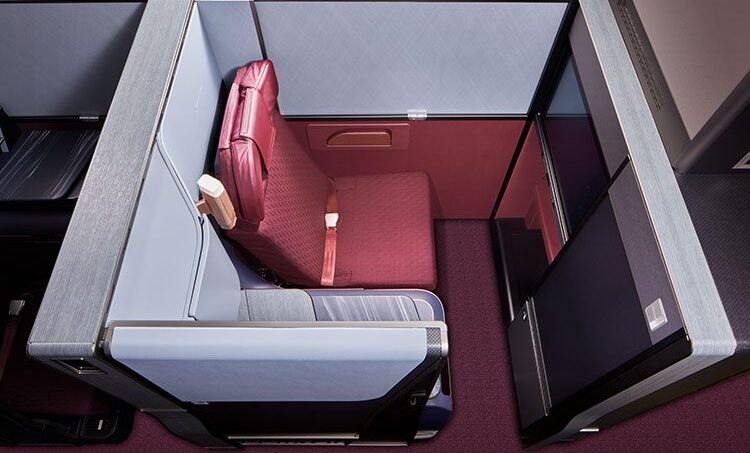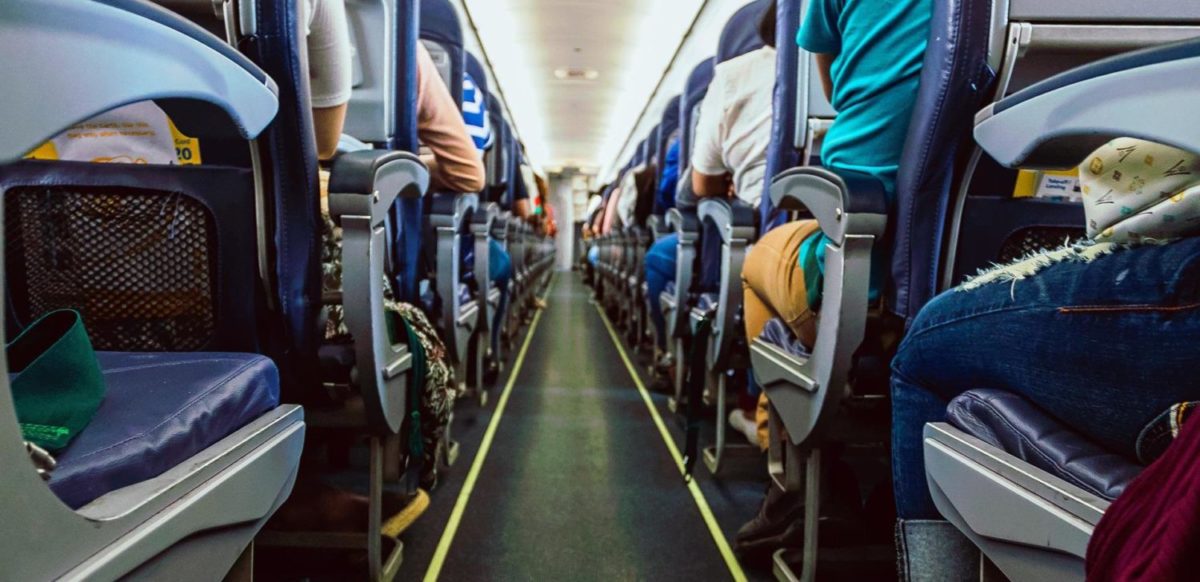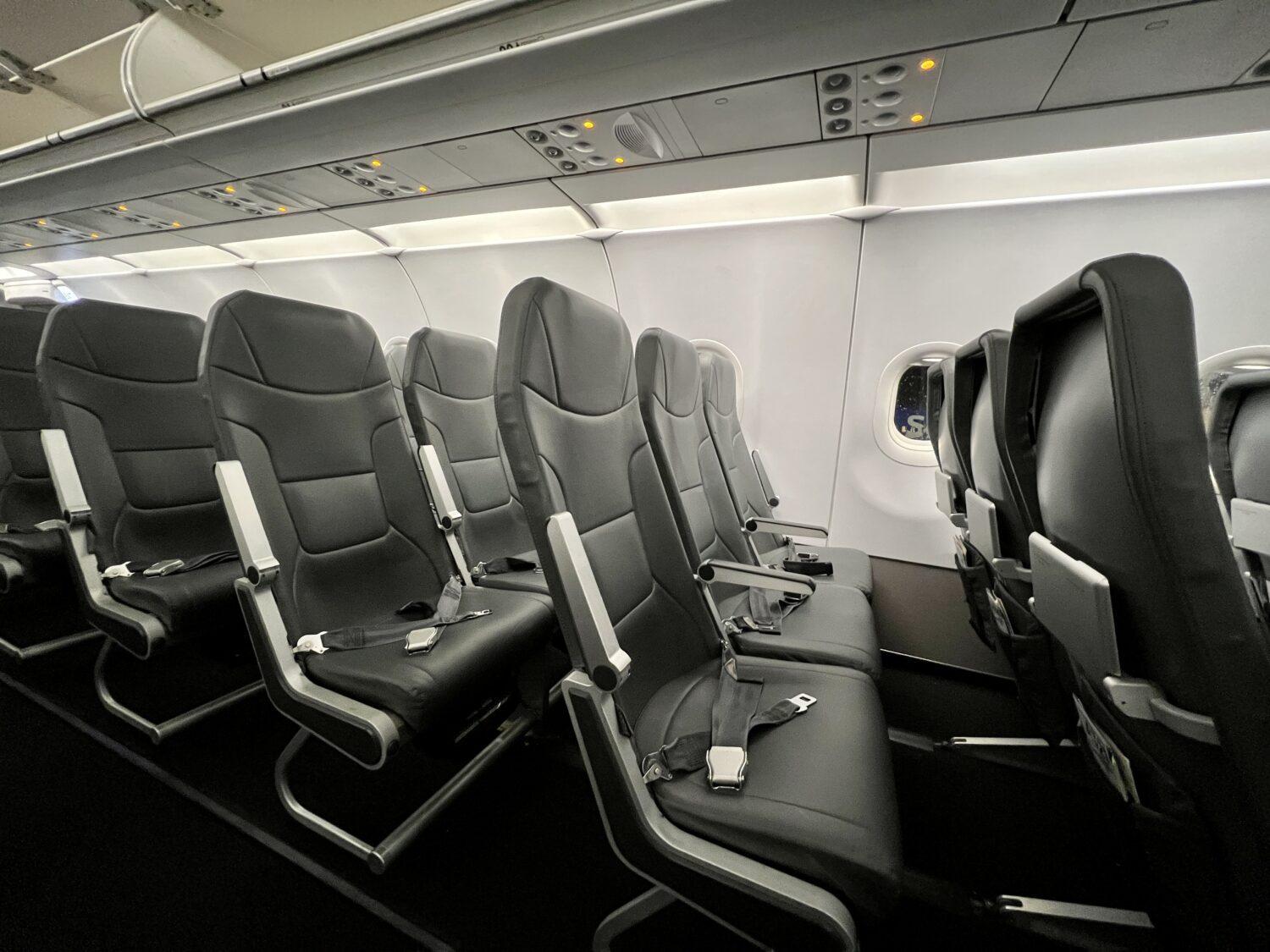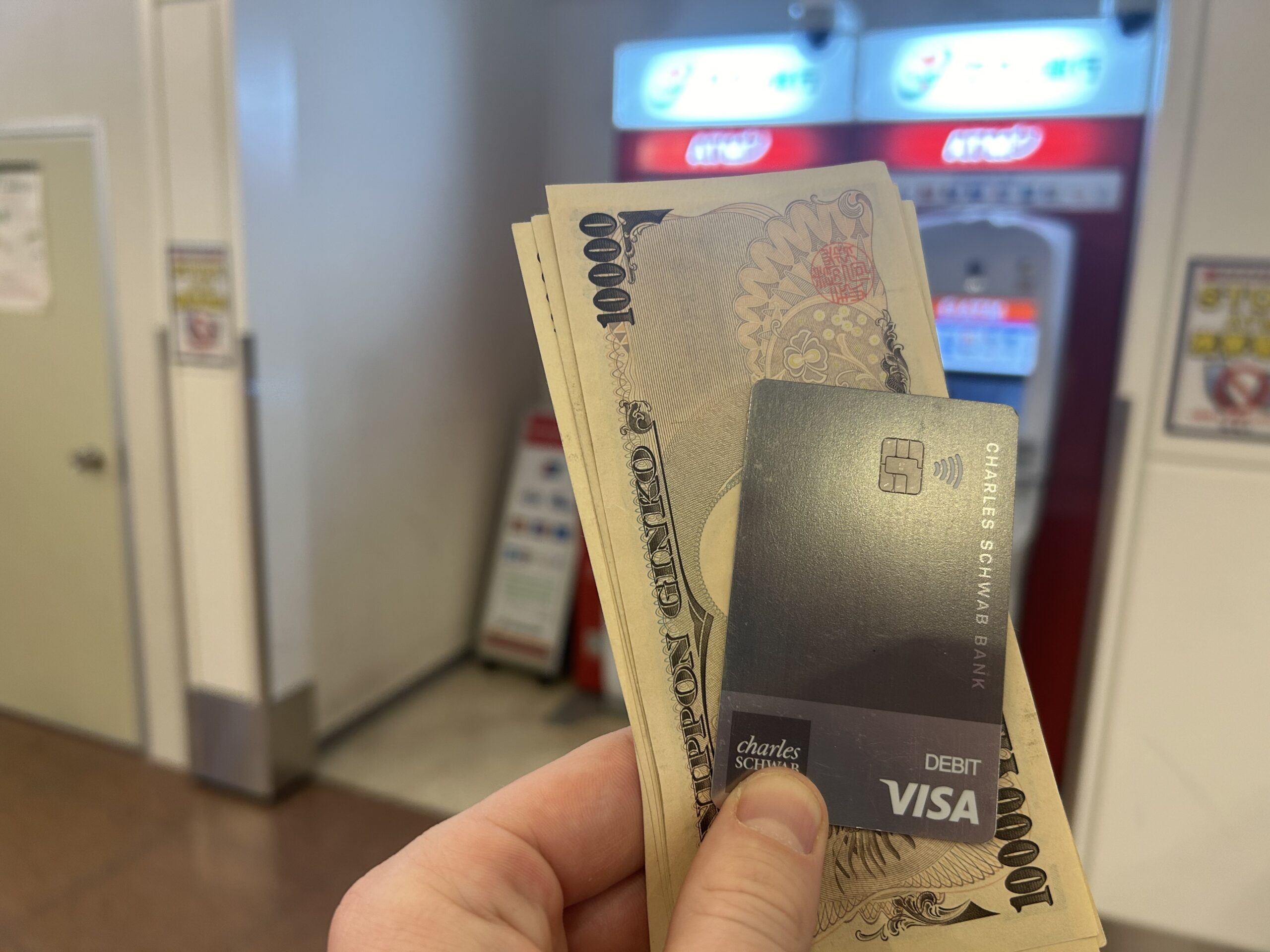For years, Americans have enjoyed an onslaught of cheap flight deals and robust availability to redeem points and miles in the post-pandemic travel surge. But with “revenge travel” petering out and major changes looming across the airline industry, that might have an expiration date.
After shrinking during the worst of the pandemic, airlines have raced to add more planes and flights and bring more Americans on vacation … eventually flooding the skies with more seats than they could fill. That's led to years record-low domestic airfares and dirt-cheap fares to Europe in 2024 – even during the peak summer. Average airfare has consistently fallen from its peak in 2021.
But now, airlines are shifting course. After years of hemorrhaging money, budget carriers like Spirit and Frontier are inching away from the ultra-low-cost approach that has driven airfare nationwide down. Southwest and JetBlue are transforming. Even financially stable airlines like Delta and United are pumping the brakes, adding fewer flights than just a year ago.
Flight prices are all about supply and demand. So as airlines scale back through the rest of the year and heading into 2025, they'll eventually fix that supply-and-demand imbalance, slowing the stream of unreal flight deals we've all enjoyed down to a trickle. Airfare is bound to get more expensive this time next year.
But that hasn't happened yet.
So while many travelers have put summer in the rearview and are focused on getting kids back to school, it's time to take stock of your future travel plans so you can get to booking … while the booking is still good.
With the airline industry at a tipping point, here are five reasons why getting ahead on your travel planning is more important than ever.
With Extra Flexibility, There's No Downside to Booking Now
Honestly, the rest of this story doesn't even matter if you can grasp this:
So long as you buy the right kind of fare, it doesn't matter when you book. The newfound flexibility to change, cancel, or rebook flights for free is a guarantee you can get the best price – even if prices do drop.
It's that simple.
During the worst of the pandemic, major U.S. airlines did away with change fees on almost all their fares. That flexibility remains in place today, and it opens an avenue for travelers to change (or cancel and rebook) their existing reservations when fares drop … and pocket the difference. You won't get cash back, but you can at least get some extra money in the form of a voucher or travel credit to put toward another trip.
Read Next: Our Full Guide to Rebooking Your Flights When Prices Drop
This is the single best piece of travel advice I give to fellow flyers. Booking is only half the battle when it comes to travel planning – re-booking is where you become a savvy traveler instead of a basic one.
The key is to book Main Cabin Economy ticket or higher – say “no” to the cheapest Basic Economy fares, as this trick won't work with those. Then, track the flights you booked using Google Flights price alerts. It's one of the five things we always do directly after booking our flights to make sure we get the best fare.
Gone are the days of the anxiety of asking yourself: “Should I book now, or wait?” The answer – because of these flexible fare rules – is always now.
Looking to use your points and miles instead? Holding out hope of flying business class abroad? It's even easier: This is my favorite way to book travel – I did it for both a Europe trip in summer 2023 and a Japan trip in winter 2024.
First, book the best economy deal you can using your miles – booking one way tickets separately makes things easier. But after you're booked, keep checking and checking every few weeks to see if something even cheaper or better (including business class) pops up that works for your trip. If and when it does, cancel your existing reservation (often for free, otherwise pay a small fee) get your miles back, and rebook.
Just like that, you're flying up front.

No matter how you book, it's easier than ever to change or cancel your flights. Travel flexibility has never been greater.
So there's no reason to sit around and wait to book your flights … especially when there's trouble on the horizon.
Airlines Cutting Flights = Higher Fares Coming
Among the U.S. airlines, there's Delta and United on top … and then everyone else.
Most of the big U.S. airlines struggled financially in the first half of 2024, posting ugly quarterly losses. They have something to blame: Overcapacity.
After flooding the market with more planes and more seats to capture the explosion in travel demand, they went too far – especially domestically. Almost every major airline CEO has faulted that overcapacity for their struggles.
“There's simply more capacity than on the domestic side than demand right now,” Southwest CEO Bob Jordan told investors in late July.
“We’re in a marketplace that couldn’t absorb all that capacity,” American Airlines CEO Robert Isom said the same day.
That's been a win for everyday travelers. With so many extra seats to fill, airlines were forced to cut prices. Those discounts were most pronounced domestically, but we've also seen signs that it's extended overseas, too.
After adding record numbers of flights across the Atlantic for summer 2024, airlines wound up slashing many flight prices to Europe in August and September – a rarity in the world of flight deals. Even typically hard-to-book business class seats across the pond were in steady supply over the peak summer – unthinkable just a year ago.
But this can only go on for so long. If airlines universally agree there are too many planes in the sky to be profitable, they're going to start cutting flights. In fact, they've already started.
Southwest got ahead of it earlier this spring, announcing it would slash capacity. Spirit promised the same thing in its quarterly earnings statements in May. American Airlines told investors in July it would slow down through the end of the year.
By this summer, airline industry analysts began updating their forecasts to reflect a “capacity crisis” in the U.S. airline industry. JetBlue recently unveiled drastic plans to cut many routes, refocusing elsewhere.
You can already see the results. After steadily adding more flights year after to the tourist mecca of Orlando (MCO), data from airline schedule analytics company Cirium shows airlines will fly 9% fewer seats to the Florida hotspot in the second half of 2024 compared to the year prior.
It's even more stark in some international destinations. Between the U.S. and Cancún (CUN), there are 18% fewer seats flying this month compared to last September, according to Cirium data. There was even a noticeable dip in flights to Europe, like 3.5% fewer seats flying from the U.S. to London-Heathrow (LHR) in the final three months of the year.
To be clear, none of this means flight deals will disappear. Competition between airlines remains fierce, and the best way to win over a competitors' customers is to cut them a cheaper price.
But as airlines scale back their plans, airfare is poised to increase as the supply of flights plateaus or even decreases. With fewer seats up for grabs, airlines will get what they want: higher flight prices.
And one dynamic in the airline industry spells even more trouble for flight prices.
Low-Cost Carriers are Hurting … & Becoming Less Low-Cost
For years, the ultra-low cost carriers in the U.S. have dictated the domestic airfare market.
Wherever the likes of Spirit, Frontier, Allegiant, and Sun Country flew, prices would be lower. That's what happens when you're offering $17 one-way fares: Even Delta, American, and United have to lower fares to fill their planes.
Fast forward to present day, and budget airlines are feeling the pinch – big time.
Not only are there too many seats, but travelers are looking past ultra-low-cost carriers: They want a bigger seat with more legroom, better service, and maybe even a trip to destinations overseas where those airlines don't fly. Even mighty Southwest Airlines is struggling.
In the airline industry, you adapt or you die. So the beleaguered budget airlines are adapting … by leaving bits of their ultra-low-cost model behind and going mainstream.
Frontier kicked it off in May, announcing fares with free changes, carry-ons, and seat selection – just like the major airlines. Spirit Airlines followed suit while also introducing a bonafide first class fare with its Big Front Seat.
Meanwhile, Southwest is in the midst of a drastic transformation to right the ship. Out of nowhere, the airline suddenly started listing its tickets on Google Flights this spring, eventually expanding to Kayak. Next up, the unthinkable: Its open-seating policy will end next year. The airline is also adding extra-legroom seats to win over more customers.
On the surface, this all seems like a win for travelers: A better experience for everyone onboard and no more getting surprised by the a la carte fees on ultra-low-cost carriers. Why wouldn't you want these airlines to look more like American, Delta, and United?
Here's why: Because those changes are all a way for budget airlines to charge higher fares. That takes some of the pressure off the bigger, legacy carriers. Across the board, airfare is sure to go up.
No airline dictates flight prices across North America as much as Southwest – their regular sales and promos always force other carriers to respond. And I wrote just last month that travelers can't afford to root for the likes of Spirit and Frontier to falter and why – even if you never fly on those airlines – you should be rooting for healthy, ultra-low-cost airlines.
Those airlines might not be going out of business – at least not yet. But their moves away from the core of the ultra-low-cost model spell trouble for travelers who love cheap fares.
Air Travel is Getting Better (At Least Up Front)
I know, I know: This story has been all doom and gloom. It's time for some good news, so here it is:
Some of the best airlines in the world are getting even better. Some of the best lie-flat seats in the world are still (relatively) easy to book, and the earning the points and miles to book them is easier, too. And, at least for the time being, your favorite airlines are still offering huge savings.
There is a lot to be excited for out in the airline world right now.

The competition for premium travel aficionados' dollars (or points) is fierce, and it's forcing airlines to up their game. Here's a list of the airlines we expect to unveil brand new business class seats in the next year (along with Japan Airlines, which is already flying its dreamy new setup):
- Emirates
- Cathay Pacific
- American Airlines
- Iberia
- Lufthansa (which we just reviewed and found is just as amazing as it looks!)
- Qantas
- An even better version of Qatar Qsuites
- Turkish Airlines
- SWISS
Our Thrifty Traveler Premium members are already getting award alerts in their inboxes to book these brand-new seats for a trip next year, and more are on the way. And you better believe we're checking for more every day!
Like flying Delta? Well Delta's famous SkyMiles Flash Sales have made a comeback lately, including deals that make the days of seeing 400,000 SkyMiles for a business class seat an afterthought. We've seen flights in Delta One Suites to Asia for just 83,000 SkyMiles and Europe for under 25,000 SkyMiles roundtrip.
Delta flyers have more to be excited about. Scandinavian Airlines (SAS) officially joined SkyTeam, giving Delta travelers an easier way to throughout Northern Europe, earning SkyMiles on those flights – or redeeming them for a trip to Scandinavia on SAS!
For business class flyers, the cheapest way to book lie-flat seats to Europe (just 27,000 points each way!) is back for 2025. And some of your other favorite ways to fly business class around the world are easy-to-book if you know where to look. To fly economy all over the world, you don't need more than $400 for a roundtrip ticket, either.
The ultra-low cost carriers might be shaky and airline executives are tightening their belts and networks, but that doesn't mean flying is getting worse. In fact, I think it's getting better.
Strike While the Dollar's Strong
Americans have been a spoiled over the last two years as the U.S. dollar has been as strong as ever for travelers heading abroad. Lucky for all of us, that's still the case.
Focusing on traveling to places where your dollar goes further is one of the simplest ways to save on travel. While going out to a nice dinner in your home city might run you $120 or more, you can eat and drink twice as much for less than that in places abroad.
Portugal, Spain, Greece, Croatia, and Turkey are just some of the European destinations where your dollar stretches even further – especially if you're willing to deviate from the main tourist magnets in major cities. And tried-and-true cheap destinations like Thailand and Cuba have also been beckoning travelers with a strong exchange rate.
Even travelers heading north of the border to Canada are seeing huge savings when compared to the struggling Canadian dollar.
Most surprising over the last year has been Japan, where the yen was historically weak this summer … and the U.S. dollar was historically strong: At its peak, $1 would get you 160 yen – up from under 110 yen pre-pandemic!
That has been trending down lately, with a current exchange rate at 142 yen. Still, travelers heading to Japan don't have to think twice about ordering a second bowl of ramen or another round of drinks.
The dollars in your account are more valuable than ever abroad, even if it feels like things are expensive here. Sometimes I feel like I can't afford not to travel!
Bottom Line
Airfare is low, but there's trouble on the horizon as airlines continue to trim their schedules. Travel is more comfotable and exciting than ever, and the dollar is still strong.
Add it all up, and what are you waiting for? Book the trip.









